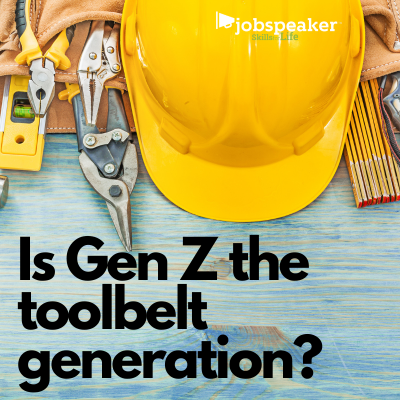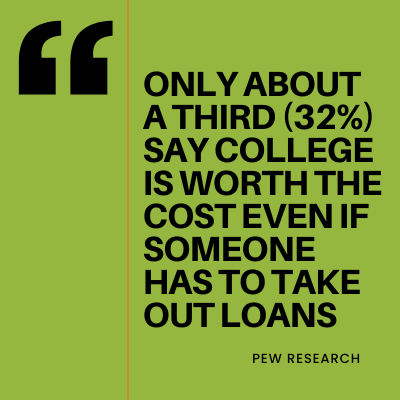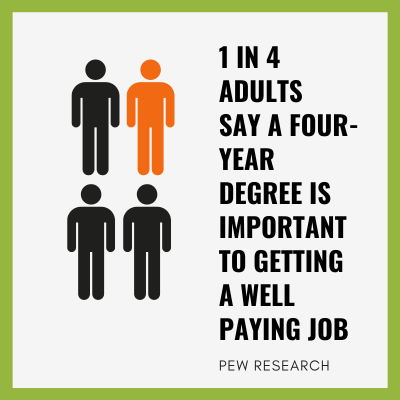Sy Kirby dreaded the thought of going to college after graduating from high school. He says a four-year degree just wasn’t in the cards for him or his bank account.
“I was facing a lot of pressure for a guy that knew for a fact that he wasn’t going to college,” Kirby says. “I knew I wasn’t going to sit in a classroom, especially since I knew I wasn’t going to pay for it.”
Instead, at the age of 19, Kirby took a job at a local water department in southern Arkansas. He said the position helped him to develop the skills that helped him start his own construction company.
Now at age 32, Kirby finds himself mentoring many of his employees, who also opted to learn a skilled trade rather than shelling out tens of thousands of dollars to pursue a degree that they wouldn’t use after graduating.
Kirby says blue-collar work is lucrative and allows him to “call the shots” in his life. But, he says the job also comes with a downside, mainly because of the stigma attached to the industry.
“I think there’s a big problem with moms and dads coming home from quote-unquote ‘dirty’ jobs. Coming home with dirty clothes and sweating. You had a hard day’s work and sometimes that’s looked down upon,” he says.
Kirby is among the growing number of young people who have chosen to swap college for vocational schools that offer paid, on-the-job training.
Skilled trades make a comeback
Lisa Countryman-Quiroz is the CEO of JVS, or Jewish Vocational Service, a nonprofit in San Francisco that provides career training for unemployed workers to find jobs, including in skilled trades. She says that over the years there has been a shift — with skilled trade making a comeback, especially among members of Generation Z.
“Folks have really prioritized a college education as a path to the middle class and a path to a cushy office job.” But, Countryman-Quiroz says, “over the last 10 to 15 years, we are seeing a trend among young people opting out of universities. Just the crushing debt of college is becoming a barrier in and of itself.”
Read full article here.
For a demo of our products, click here.


